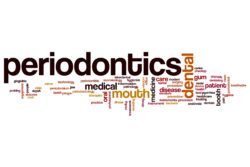 Sores in the mouth, sensitivity, bleeding, and redness of the gums are all possible warning signs of one serious oral health concern: gum disease. Without treatment, the disease will continue to grow in strength, eventually becoming periodontitis and actually attacking the connective tissues between your teeth and gums. With the advanced stage comes a greater risk of adult tooth loss. How do we treat gum disease? What can we do to improve oral health?
Sores in the mouth, sensitivity, bleeding, and redness of the gums are all possible warning signs of one serious oral health concern: gum disease. Without treatment, the disease will continue to grow in strength, eventually becoming periodontitis and actually attacking the connective tissues between your teeth and gums. With the advanced stage comes a greater risk of adult tooth loss. How do we treat gum disease? What can we do to improve oral health?
Frequently Asked Questions About Treating Gum Disease
Question: How does a scaling and root planing work?
Answer: Often, gum disease develops after plaque buildup has irritated and inflamed the gum tissue. A scaling and root planing uses an ultrasonic scaling device to remove plaque and tartar from the teeth and the surface of the roots. The procedure stops further inflammation and allows the periodontal pockets to close, reversing gingivitis and managing the early stages of the disease.
Question: Do you recommend anti-bacterial rinses?
Answer: We may recommend an anti-bacterial rinse in the early stages to help destroy harmful bacteria, which can worsen periodontal issues.
Question: When do you prescribe laser treatment?
Answer: We reserve laser treatment for the later stages. Using a dental laser, we can remove infected issue for the gums and help remove plaque buildup as well. Healthy gum tissue can then adhere to the teeth, closing pockets and helping your smile stay healthy and free of periodontitis. Lasers offer a number of benefits over a scalpel, they are comfortable (rarely requiring any anesthesia), prevent bleeding, and significantly reduce the risk of infection. If you have any questions about periodontal disease, or any of our treatment options, then please contact our office today. We can address your gum issues with a personalized treatment plan.
